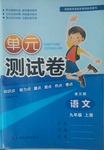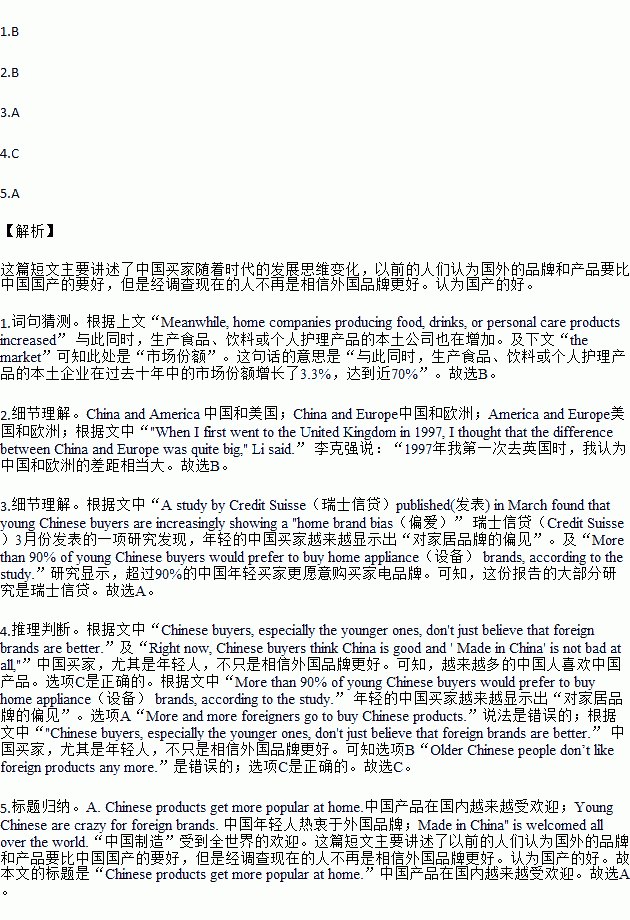题目内容
Chinese buyers used to like foreign brands, thinking that products made by American or European companies are of higher quality than Chinese ones. Increasingly, that's no longer the case.
Chinese people born before 1985 generally think that foreign brands are better than Chinese ones, billionaire William Li told Business Insider(商业内幕) during a recent interview on CCTV9.
But for those who were born after 1985, it is a different picture.
"When I first went to the United Kingdom in 1997, I thought that the difference between China and Europe was quite big," Li said. "But for those born in the 1990s, when they visit Europe or the US, they do not think there is a big difference."
The change in thinking among Chinese buyers is showing up in many markets in China where Western companies used to control. A study by Credit Suisse(瑞士信贷)published(发表) in March found that young Chinese buyers are increasingly showing a "home brand bias(偏爱)” .
More than 90% of young Chinese buyers would prefer to buy home appliance(设备) brands, according to the study. Meanwhile, home companies producing food, drinks, or personal care products increased their share of the market by 3.3% over the last ten years to nearly 70%.
"Chinese buyers, especially the younger ones, don't just believe that foreign brands are better.
Right now, Chinese buyers think China is good and ' Made in China' is not bad at all," Charlie Chen, head of China buyer research at Credit Suisse, told South China Morning Post in March.
The Chinese smartphone market is controlled by home companies—Huawei, Oppo, Vivo, and Xiaomi. Apple is the only foreign brand in the top five, but it has lost large ground to the home brands in recent years. Its market share is believed to be down to 37%from a 2015 high of 54%.
1.The underlined word “share” in the passage means________ in Chinese.
A.分享 B.份额 C.分担
2.William Li found a big difference between ________ in 1997.
A.China andAmerica B.China and Europe C.America and Europe
3.Who did most of the research for this report?
A.Credit Suisse.
B.South China Morning Post.
C.Business Insider.
4.Which of the following is true?
A.More and more foreigners go to buy Chinese products.
B.Older Chinese people don’t like foreign products any more.
C.More and more Chinese people prefer Chinese products.
5.What's the best title for this passage?
A.Chinese products get more popular at home.
B.Young Chinese are crazy for foreign brands.
C."Made in China" is welcomed all over the world.
 阳光试卷单元测试卷系列答案
阳光试卷单元测试卷系列答案
